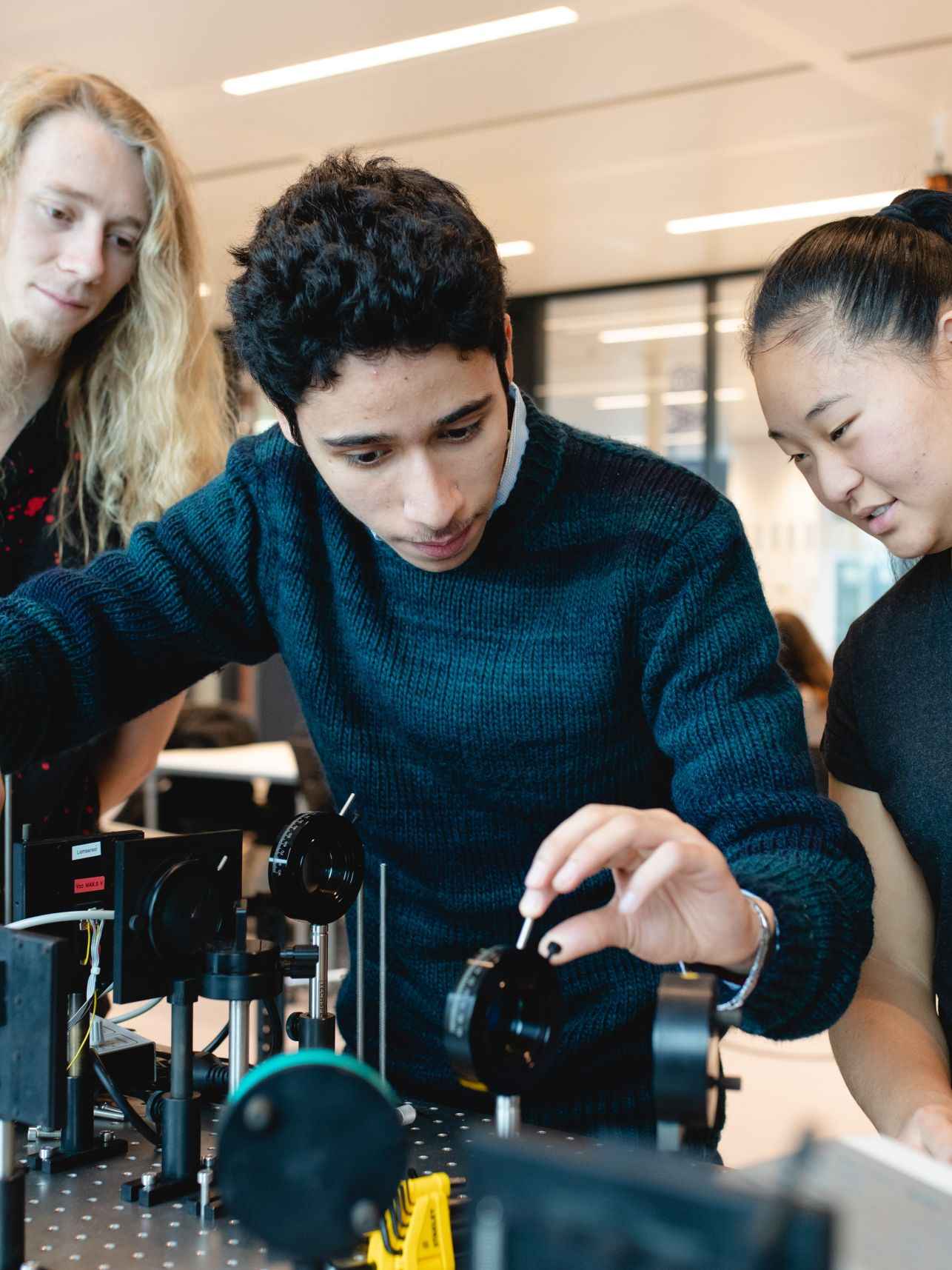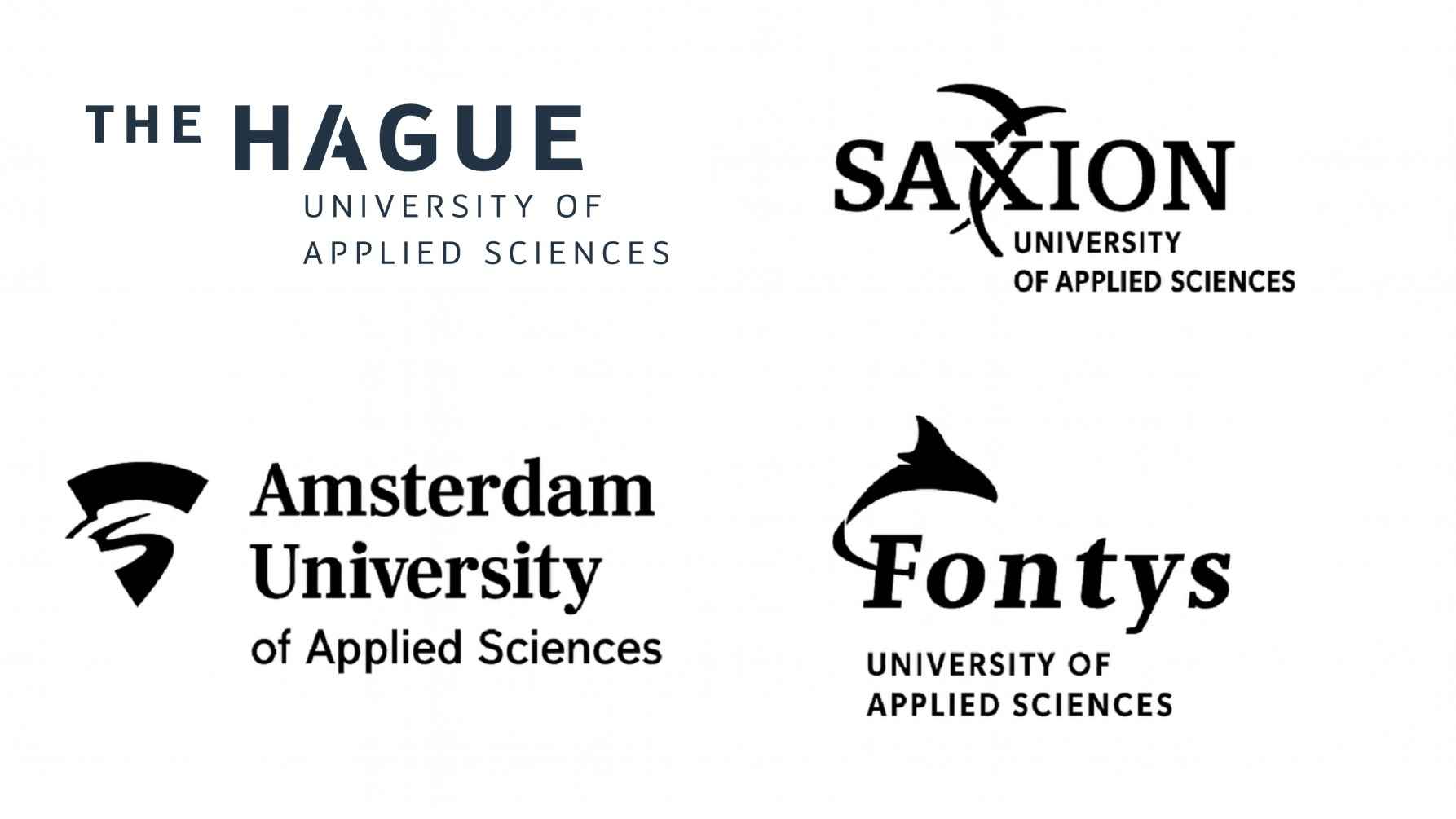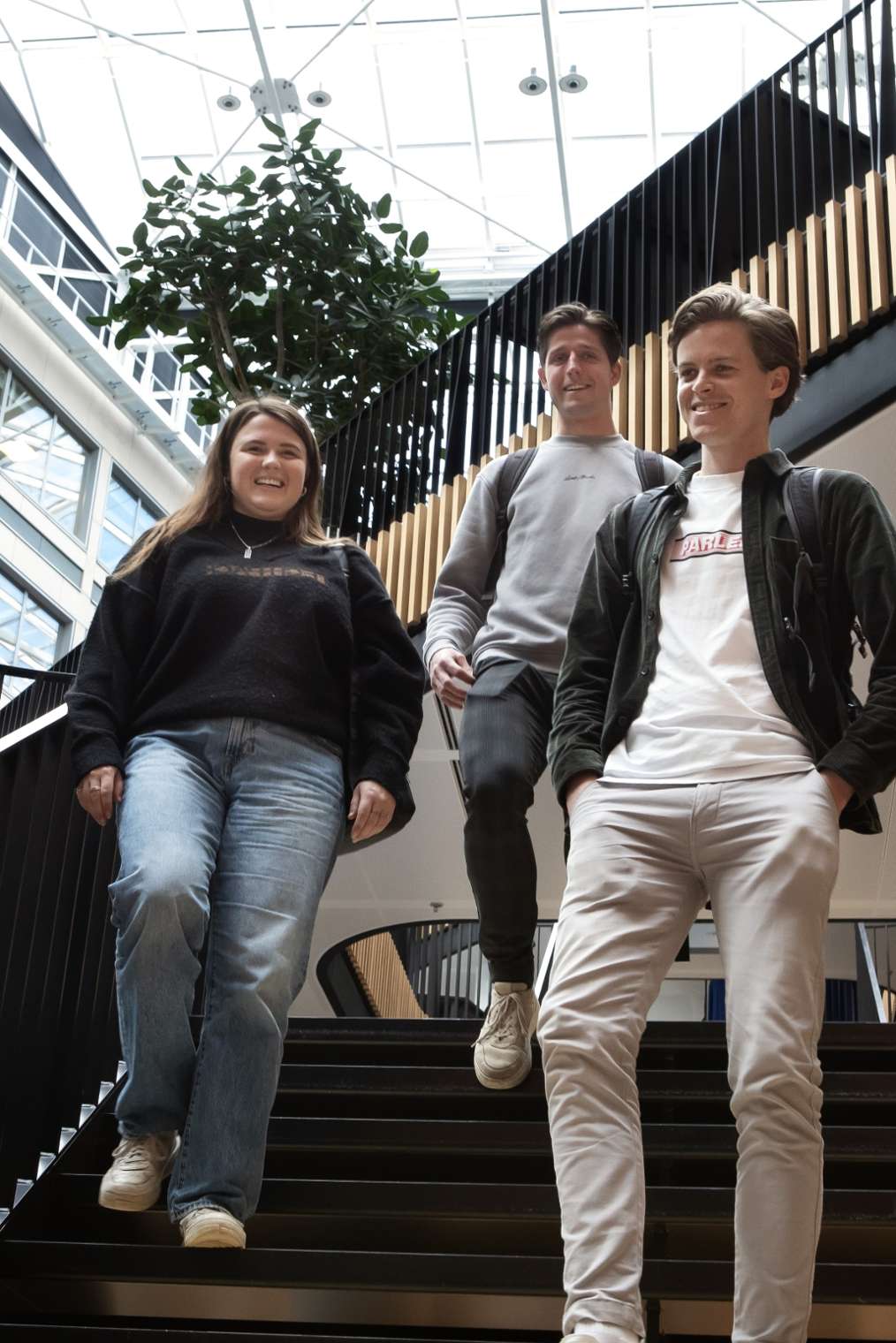Master Applied Quantum Technology
master's, full-time, 2 years
About this programme
Quantum technology is developing fast — from computers that are much more powerful than today’s, to ultra-secure communication and highly sensitive sensors. These technologies will help solve complex challenges, such as developing new medicines or improving cybersecurity. The Master in Applied Quantum Technology prepares you to work in this exciting new field. The programme combines knowledge of quantum software, photonics and electronics, and focuses on skills you can use in practice.

The Master of Applied Quantum Technology is a joint degree offered by four Dutch universities of applied sciences. Students will have classes at all four locations, but your travel days will be minimised to twice per week. All classes will start at 10:00 AM and finish at 4:00 PM, taking travel time into account.
Programme structure
The Master in Applied Quantum Technology is a joint degree. You study at four universities of applied sciences, each with its own focus in quantum technology. This gives you broad and practical knowledge. Once or twice per week you may travel between different universities (up to 2,5 hours one way). On other days, you follow classes online, or at your home university. Projects are guided by a lecturer from your home location.

- Introduction
You meet fellow students, visit the four universities, and follow courses based on your background.
- Core programme
All students follow the same courses in quantum hardware (electronics and photonics) and quantum software.
- Specialisation
Choose one track: Quantum Software, Quantum Electronics or Quantum Photonics. You combine theory, lab work and projects.
- Graduation internship
You finish with a project in industry, where you design and build a quantum-related device.
The Master of Applied Quantum Technology is a joint degree between four Dutch universities of applied sciences. Students will have classes on all four locations.
Admission requirements
Mathematics and physics
The master’s programme in Applied Quantum Technology is open to students with a bachelor’s degree and proof of sufficient knowledge of fundamentals of mathematics, physics and/or programming.
Study load
40 hours a week
You can expect a study load of at least 40 hours a week. You will study at a partner universitiy once or twice per week (8 weeks per block).
Tuition fees and expenses
Tuition
Besides tuition, you will be expected to cover the costs for accommodation and travelling.
Why Applied Quantum Technology

- Get hands-on experience with quantum hardware and software in extensive lab sessions that prepare you for real-world challenges.
- Work on design projects and internships in collaboration with leading quantum companies and applied research groups.
- Learn to combine quantum physics, engineering and computer science to develop practical, future-ready solutions.
- Develop strong professional and interdisciplinary skills that are highly valued in the quantum tech job market.
- Study at the heart of the Dutch quantum ecosystem—Amsterdam, Delft/Leiden, Enschede or Eindhoven—with direct access to companies, labs and innovation networks.
For whom?

- You are curious about quantum technology as a societal challenge and want to move beyond theory into hands-on projects that address real-world problems.
- You thrive in collaborative, multidisciplinary environments, solving complex issues alongside engineers, physicists, and software developers.
- You want to specialise in quantum software, electronics or photonics, using advanced tools to push the boundaries of applied quantum technology.
- You are looking for an industry-driven programme with opportunities for internships at leading companies in the quantum technology sector.